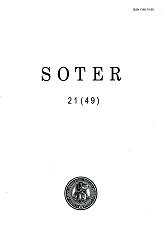Vaiko interesų pirmumas dirbtinio apvaisinimo kontekste
The best interest of the child in the context of the assisted reproduction
Author(s): Jonas JuškevičiusSubject(s): Christian Theology and Religion
Published by: Vytauto Didžiojo Universitetas
Keywords: vaiko interesų pirmumas; individo teisės; heterologinis dirbtinis apvaisinimas; donorų anonimiškumas; reprodukcinė autonomija; the best interest of the child; rights of individual; heterologous assisted reproduction; donor anonymity; reproductive autonomy
Summary/Abstract: The language of individual rights is generally invoked when discussing the legal limits for assisted reproduction techniques (ART). The argument based on a particular individual right could justify a particular stance on assisted procreation. In that highly controversial area collide different rights and interests of all subjects involved. VAIKO INTERESŲ PIRMUMAS DIRBTINIO APVAISINIMO KONTEKSTE 119 Usually in these debates a desire of adult individuals for genetically related offspring is highlighted, meanwhile the rights and interests of the future child are neglected. The fact that interests of the child were left out of consideration was conditioned both because of the strong influence of reproductive medicine professionals and the legal uncertainty of a child to-be-born. Recently, a novel category of the human rights law - the principle of „the best interest of the child“ is gradually entering into the debates. The principle enables to evaluate the interest of the child in the perspective, and it seems that the employment of that principle in the area of assisted reproduction is highly appropriated in order to avoid one-sided discussions and conclusions and to highlight the perspective of the children being created by ART. There could be identified two aspects of the child welfare in the assisted reproduction: medical and psycho-social. The psycho- social aspect of the child welfare especially confronts with the practice of heterologous ART which meets the needs and wishes of adult infertile individuals. Recent follow-up studies disclose many vulnerability aspects of donor conceived offspring which induce legal scholars to re-think long held views about heterologous conception. Moreover, the provisions of UN Convention on the Rights of the Child on child welfare oblige to do that.
Journal: SOTER: religijos mokslo žurnalas
- Issue Year: 49/2007
- Issue No: 21
- Page Range: 105-119
- Page Count: 15
- Language: Lithuanian

